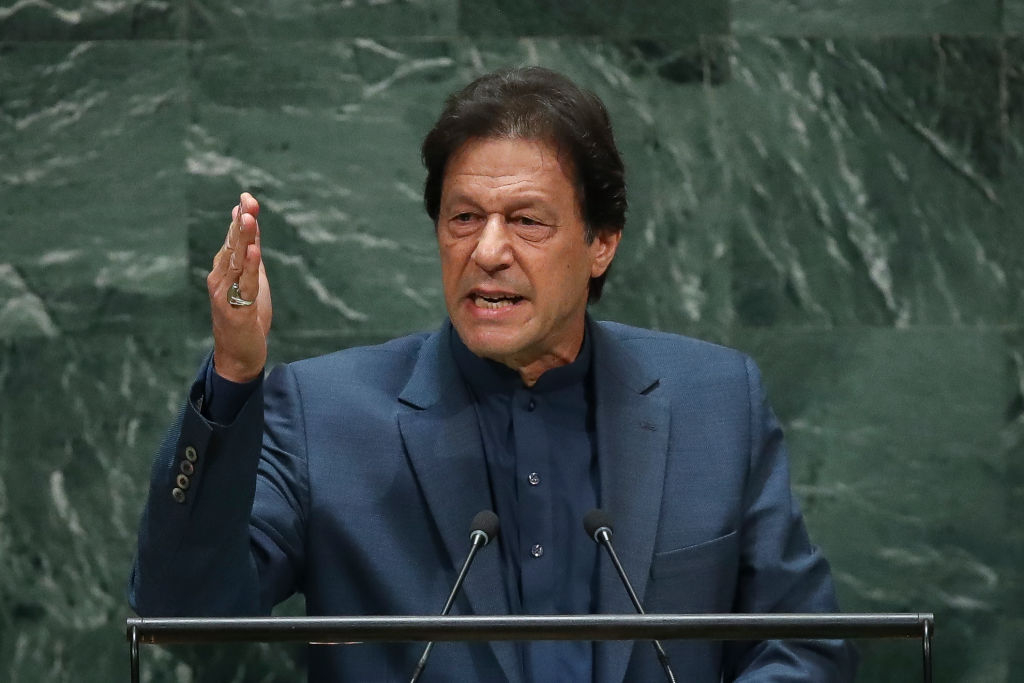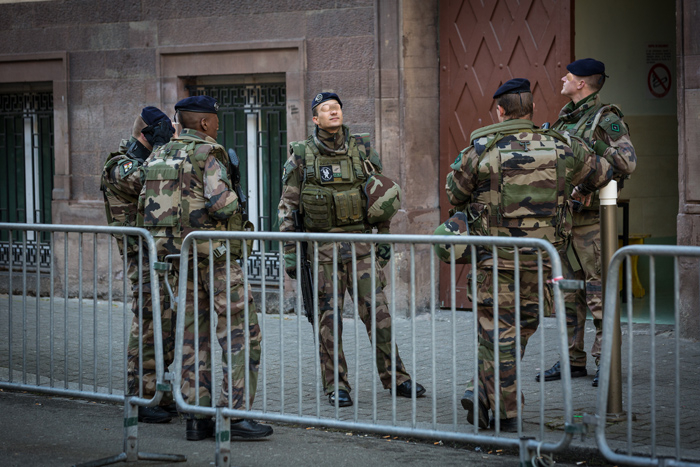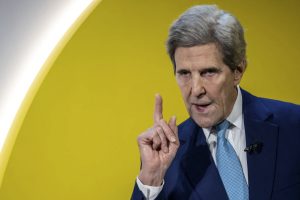The remains of St. Denis, the patron saint of Paris, who was decapitated in the year 250 during the brutal pagan persecution of Christians, lie north of the French capital in the basilica that bears his name.
The church is historically noteworthy as the first proper work of Gothic architecture, a style influenced by the Crusades. The basilica is now a rarely visited Parisian landmark, lying as it does within the profoundly Islamized enclave of Seine-Saint-Denis.
“You Christians, you kill us,” were the words of the ISIS knifeman who slit the throat of 85-year old Father Jacques Hamel. The elderly priest officiating at the altar of the church of Saint-Étienne-du-Rouvray — a mere three kilometres from the centre of Rouen in Normandy — was slain on July 25, as the two terrorists also took nuns hostage. The terrorists were then shot by police.
On August 5, police swept down on a man shouting “Allahu Akbar” [“Allah is the Greatest”] on the Champs-Élysées, the famous central thoroughfare of the capital of France. Video of the arrest shows passers-by: veiled Muslims, tourists, and presumably indigenous French men and women.
Both of these incidents, when aligned with recent mass outrages across France, including the Bataclan Theatre slaughter on November 13, and the mass carnage caused by a jihadist plot in Nice on July 14, point to a startling reality.
Despite the rhetoric by the government of Prime Minister Manuel Valls on removing dual nationality from those guilty of terrorism offences and closing extremist mosques (20 of France’s 2,500 alleged mosques have been closed down to date), the violent consequences of jihadism are a daily reality and concern stalking the heart of most French metropolitan districts.
At 7.5% of the population, Muslims in France make up the highest concentration of Muslims of any country in Europe, according to Pew Research.
For decades, those warning of the inevitable consequences of mass Muslim immigration, during a time in history when Islamic fundamentalist doctrine was on the rise worldwide, have been maligned, prosecuted, imprisoned or assassinated.
With the security infrastructure now proving inadequate to cope with the sheer scale of enthusiasm for religious war amongst those Islamists born in France, and those able to enter the country — thanks to the open border policies of the EU — the threat continues to increase day by day.
Close to the Champs-Élysées, which runs between the Louvre museum and the Arc de Triomphe, lies the official residence of the president of France.
Presently occupied by the Socialist François Hollande, who closely courted the Muslim vote to gain power in 2012, many French people are looking towards the presidential elections scheduled for April and May 2017, to provide a new occupant of the Élysée Palace in the form of Marine Le Pen.
Le Pen leads the Front National, a party with deeply disturbing roots in the form of its anti-Semitic founder Jean-Marie Le Pen (father of Marine Le Pen), who in the wake of the Bataclan attack called for the return of the guillotine.
The form of execution made infamous during the French Revolution preceded successive Republics in France that were rigorously antithetical to the inclusion of religious matters in political affairs.
Until a few years ago, the unique recipe for secularism adopted by the French seemed able to guarantee the assimilation of the country’s burgeoning number of Muslims, something now, by criminal and terrorist activity in the country, proven a resolute failure.
People in France intimately link the ascendancy of the Front National with the increased incidence of terrorism in France, given the rigorous unwelcoming line the party has taken on Islamic immigration.
In response to the Nice massacre, in which a Tunisian resident of France named Mohamed Lahouaiej-Bouhlel ploughed a truck into revellers enjoying fireworks, the leader of the Front National called for the resignation of the French Interior Minister.
“In any other country in the world, a minister with a toll as horrendous as Bernard Cazeneuve — 250 dead in 18 months — would have quit,” she added.
Marine Le Pen also went on to excoriate, “the same old solemn declarations,” from France’s present government, which appear to follow every terrorist outrage — a situation that led Le Pen to remark:
“The war against the scourge of fundamentalism hasn’t started, it must now be declared. That is the deep wish of the French, and I will put all my energy so that they are finally heard and the necessary fight is finally undertaken.”
In a telling move, the president of the regional council of Nice, Christian Estrosi, added to the chorus of criticism of the government. He questioned whether, despite being in a state of emergency, France had either the policing numbers or expertise to face its terror threat.
After a cascade of terrorist massacres that began with the slaughter of the staff of the French satirical magazine Charlie Hebdo on January 7, 2015, the most terrorism-scarred country in Europe has erupted into successive outpourings of grief. Now, admits Time magazine, this grief is turning into anger.
In order for the Front National to prove successful at next year’s Presidential Elections, it will need to defeat the other right-wing force in France, and survive through two rounds of voting.
The Union pour un mouvement populaire party (UMP) is led by former President Nicolas Sarkozy, who exclaimed after Nice that, “Someone who shoots at French people, someone who kills, someone who wants jihad, does not have a place in France.”
Yet, for many, as the president of France from 2007-12, Sarkozy bears significant responsibility for creating the conditions in which fundamentalism was able to take root and prosper in France.
If Le Pen proves the eventual victor in the next presidential elections in France — a nation increasingly focused on religious affairs, occasioned by the country’s radically altering demography — a significant change in its political direction will undoubtedly arise.
The election results might signal the beginning of the end for laïcité, the long-held French principle of strict prohibition against religious influence in the determination of state policies.
A rising star of the Front National is Marion Marechal-Le Pen, Marine Le Pen’s niece, who has stated that, “Christians must stand up to resist Islam.” The 26-year old has also urged her fellow countrymen to join the military adding that, “Either we kill Islamism or it will kill us.”
In response to the Nice massacre, 2,500 young French people have joined the nation’s reserve forces.
A conservative Catholic favouring the “traditional family,” Marion Marechal-Le Pen has repeatedly spoken of “true French” identity, and demanded that Muslims adopt values rooted in Christianity, according to the BBC.
Echoing her niece’s views, Marine Le Pen erupted in fury at the sight of French riot police dragging a priest and his congregation from the church of St Rita in Paris on August 3, prior to its scheduled demolition to make way for a parking lot.
“And what if they built parking lots in the place of Salafist mosques, and not of our churches?” she said.

On August 3, French riot police dragged a priest and his congregation from the church of St Rita in Paris, prior to its scheduled demolition to make way for a parking lot. Front National leader Marine Le Pen said in fury: “And what if they built parking lots in the place of Salafist mosques, and not of our churches?” (Image source: RT video screenshot) |
It is not necessary to speculate about the scenes on French streets that would result from similar footage if the same treatment were meted out to an imam and his congregation.
A new focus on religious minority issues in France, in the fraught desire to create some sort of harmonious balance in an increasingly divided nation, seems probable.
How successful such efforts are likely to be, however, remains to be seen.
George Igler, between 2010 and 2016, worked with those facing death for criticizing Islam across Europe.


































